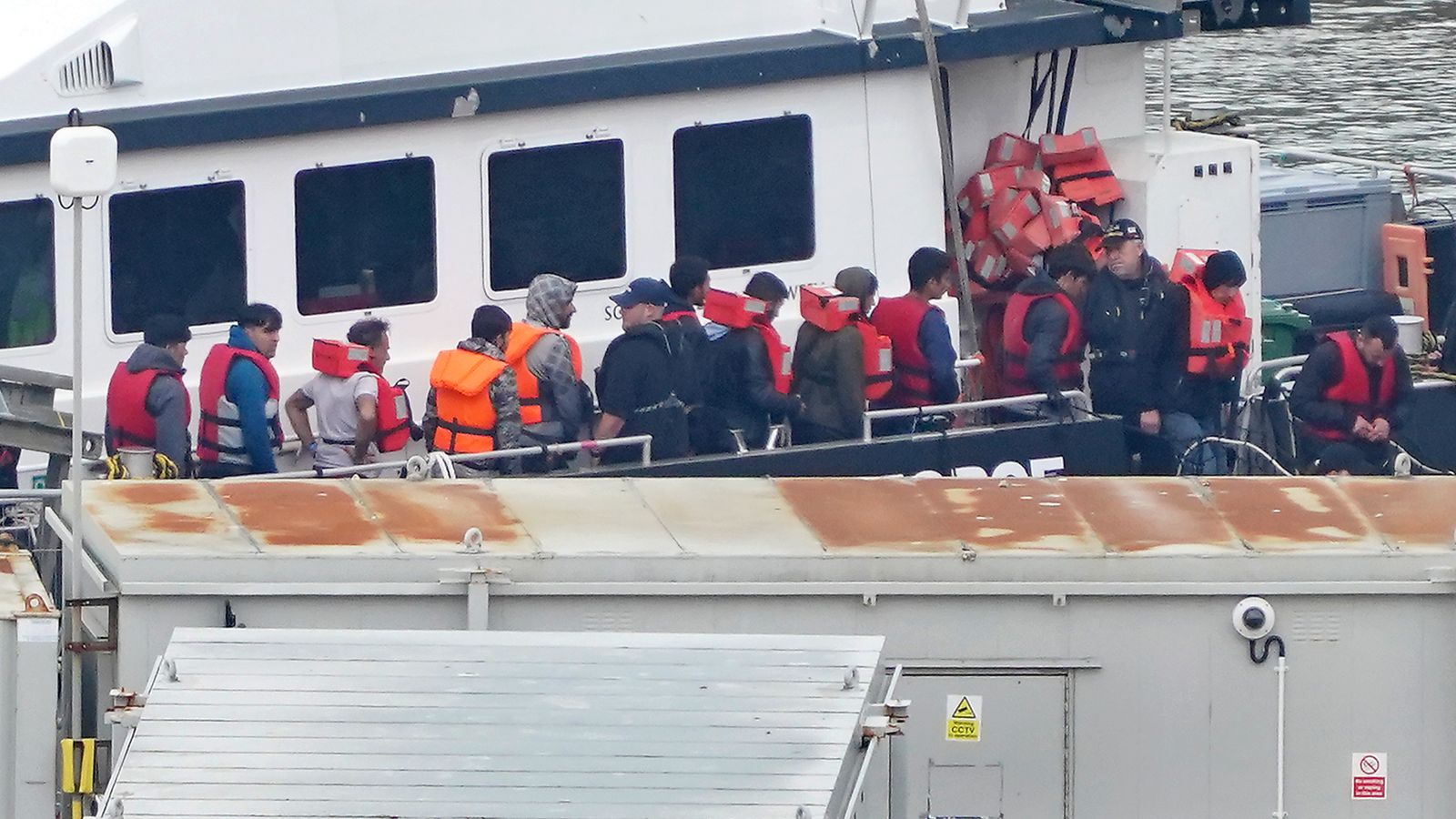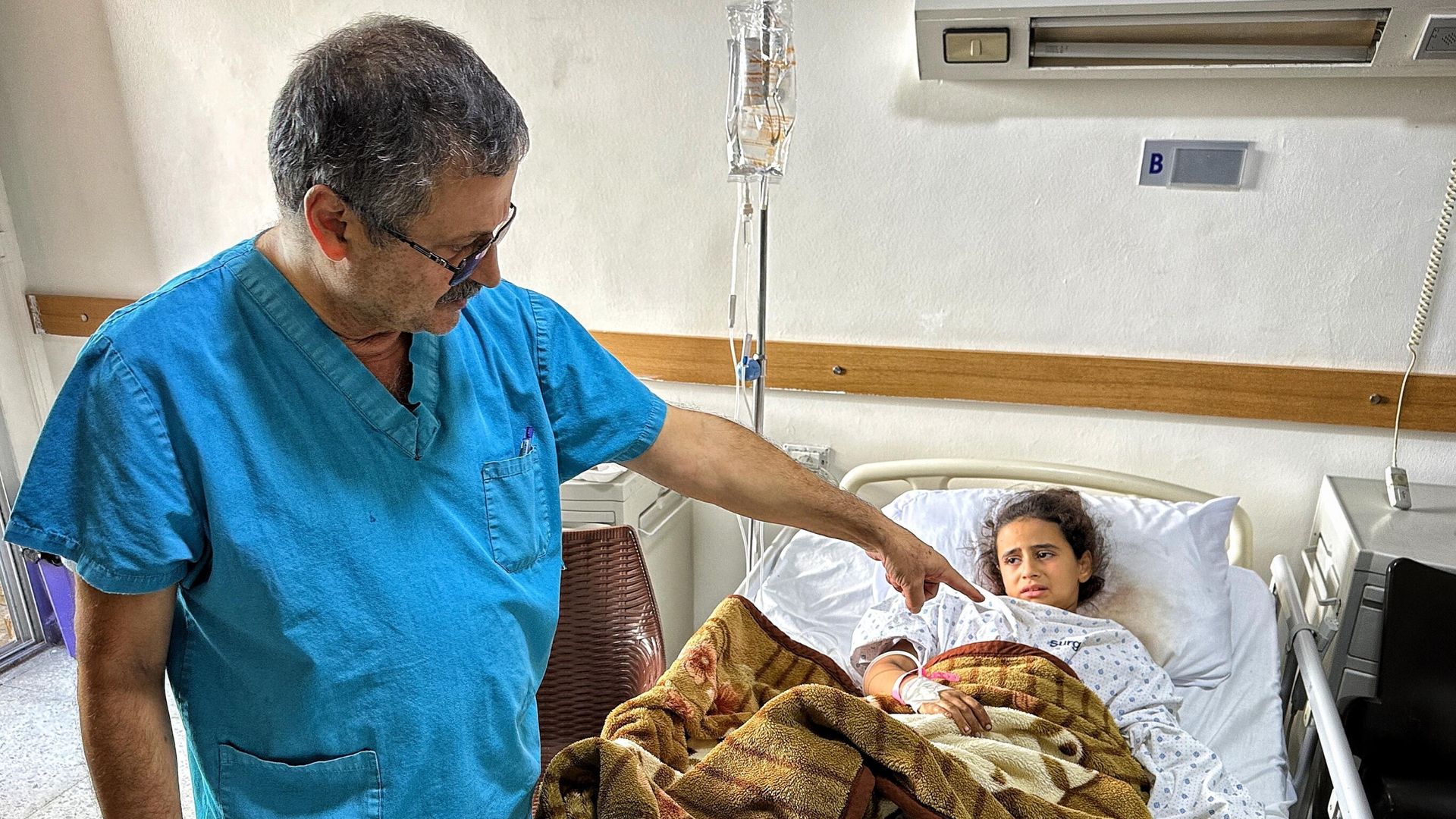The number of people who have crossed the English Channel in small boats in the past five years is now likely to have passed 100,000.
Government figures show that since 2018, when records began, 99,960 people have made the perilous journey from France to the UK as of Tuesday.
With more than 40 people believed to have landed on UK shores on small boats earlier today, it is likely the 100,000 threshold has now been crossed.
The figures show a huge year-on-year surge, with just 299 small boat arrivals in 2018 compared with 28,526 in 2021 and 45,755 in 2022.
Prime Minister Rishi Sunak has made stopping the small boat crossings one of his five key priorities for his government.
But his plans for bringing down illegal immigration have been mired in difficulty and delay.
This week 15 people were moved on to the Bibby Stockholm barge after legal challenges prevented 20 others from being transferred to the vessel.
The accommodation, off the coast of Dorset, is ultimately intended to house 500 single men – though that is less than 1% of the people waiting for their claims to be heard.
As well as barges, the government wants to use tents and military bases as cheaper forms of accommodation than hotels, which the Home Office says are costing taxpayers £6m a day.
But Labour argues the new sites are being used in addition to hotels, not instead of, and ministers should focus on cutting the asylum case backlog and targeting people-smuggling gangs.
Please use Chrome browser for a more accessible video player
The government ultimately wants to deport people who arrive by small boat to Rwanda, but the £140bn scheme has been stalled since last June due to a series of legal challenges, meaning no one has been sent to the east African nation yet.
Deputy Tory chairman Lee Anderson, who was embroiled in a row this week after saying migrants who did not like barges should “f*** off back to France”, admitted the government was failing on immigration.
However, cabinet ministers have defended the immigration strategy amid a series of Home Office announcements this week, such as a crackdown on immigration lawyers helping migrants “exploit” the system, and a new partnership with Turkey to disrupt people-smuggling gangs.
Central to the prime minister’s “stop the boats” pledge is the controversial Illegal Immigration Bill, which was passed last month after the government saw off multiple challenges in the Lords.
Read More:
Is the government’s new Illegal Migration Bill legal?
‘F*** off back to France’ comment ‘shows Tory failings on immigration’
This will ban anyone who enters the UK through unauthorised means from claiming asylum, allowing the government to deport them.
Officials are still working on when the legislation will come into force. Questions remain about whether the bill will comply with international law, and where people will be sent if their home countries are not safe and returns agreements are not in place.
Please use Chrome browser for a more accessible video player
Ministers have hinted at leaving the European Convention on Human Rights (ECHR), a treaty that underpins the country’s duty to help migrants, to better protect the UK’s borders.
But reports on Thursday suggested Mr Sunak’s cabinet is split on the matter, as the move would put the UK at odds with the majority of European nations and could also cause complications over the operation of the Good Friday Agreement in Northern Ireland and post-Brexit deals with the EU.
Be the first to get Breaking News
Install the Sky News app for free
A Home Office spokesperson said on Thursday: “The unacceptable number of people risking their lives by making these dangerous crossings is placing an unprecedented strain on our asylum system.
“Our priority is to stop the boats, and our Small Boats Operational Command is working alongside our French partners and other agencies to disrupt the people smugglers.
“The government is going even further through our Illegal Migration Act which will mean that people arriving in the UK illegally are detained and promptly removed to their country of origin or a safe third country.”








